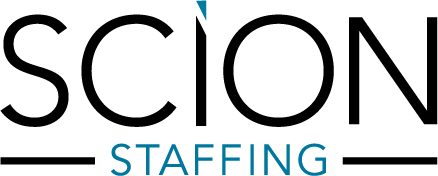
21 Mar Navigating Career Transitions Successfully
The working world is constantly evolving. With new technologies emerging and industries shifting, many people find themselves considering a career transition at some point in their professional journey. Whether you’re feeling unfulfilled in your current role, seeking better work-life balance, or simply drawn to a different field, making a career change can be an exciting and empowering move. However, it’s also important to approach it strategically to ensure a smooth and successful transition. In this article, we will do our best to equip you with the knowledge and tools you need to navigate career transitions with confidence.
How to Transition to a New Career
Contemplating a career change can be an exciting prospect, offering the chance to leverage your existing skillset while pursuing a new passion. However, navigating career transitions can present strategic challenges. This section will provide a roadmap to guide you through the essential steps of transitioning to a new career, equipping you with the tools and strategies to make a well-informed and successful move.
Self-Discovery: Know Your “Why” and Your “What”
The first step to a successful career transition is introspection. Ask yourself why you want to change careers. Are you seeking a more creative outlet? A better work-life balance? A higher salary? Identifying your core motivations will help you narrow down potential new paths. Once you understand your “why,” it’s time to explore your “what.” What are your skills and interests? What kind of work environment energizes you? Consider taking career assessments and researching different fields to discover options that align with your passions and strengths.
Bridge the Gap: Develop Transferable Skills
While changing careers might involve acquiring new skills, you likely possess a wealth of transferable skills from your current or previous experiences. Analytical thinking, problem-solving, communication, and teamwork can be valuable assets across diverse industries. Identify the transferable skills you have and highlight them in your resume and cover letter, demonstrating how they would benefit you in your new career.
Upskilling and Education: Invest in Yourself
Depending on your chosen new field, you might need to acquire additional skills or certifications. Research online courses, bootcamps, or even degree programs that equip you with the necessary knowledge and qualifications. Many employers are willing to invest in employees who are actively seeking to grow within their organization. Explore tuition reimbursement programs or discuss professional development opportunities with your current employer (if applicable).
Network Like a Pro: Leverage Your Connections
Networking isn’t just about landing a job; it’s about building relationships and gaining valuable insights. Connect with professionals in your desired target industry on LinkedIn or attend industry events. Inform the people in your network about your career transition and ask for informational interviews. These conversations can provide invaluable information about the day-to-day realities of the job and help you refine your goals.
Craft a Compelling Narrative: Tailor Your Resume and Cover Letter
Your resume and cover letter are essential tools when transitioning careers. Focus on highlighting relevant skills and experiences from your past that translate to the new field. Quantify your achievements whenever possible to showcase the impact you’ve made. Tailor your resume and cover letter to each specific job application, emphasizing the skills and experiences most relevant to the position.
How to Explain Career Transitions in Interviews
Career transitions can raise questions during interviews. Be prepared to confidently explain your career shift. Focus on the positive: emphasize your transferable skills, the skills you’re actively developing, and your genuine passion for the new field. Frame your career change as a growth opportunity, demonstrating your adaptability and desire to learn. Practice answering common interview questions related to career transitions to ensure you articulate your story clearly and convincingly.
Best Career Transition Tips
- Start Small: Consider volunteering or freelance work in your desired field. This allows you to gain practical experience while building your network and building a portfolio for potential employers.
- Be Patient: Career transitions take time and effort. Don’t get discouraged if you don’t land your dream job immediately, especially in a tough labor market.
- Embrace Continuous Learning: Upskilling and reskilling are essential for any career path in today’s working world. Make a commitment to lifelong learning to stay ahead of the curve and see success in your transition.
- Build a Strong Online Presence: Polish your LinkedIn profile and consider creating a professional website to showcase your skills and experience, as well as build your professional network.
Do Career Changes Always Work Out?
While career changes can be highly rewarding, there’s no guarantee of immediate success. However, by approaching career transitions strategically and aligning your job search with your career goals, you can significantly increase your chances of landing a fulfilling role in your desired field. Remember, even if your first attempt isn’t perfect, the skills and experience you gain along the way will be valuable assets in your ongoing career journey.
Looking to Change Careers? Scion Staffing Can Help!
Scion Staffing is an award-winning staffing and recruitment firm with a national reach that can help job seekers with their career transitions. We understand the challenges of navigating a career transition. Our experienced team of recruiters is dedicated to helping job seekers find opportunities that align with their skills and aspirations. We work closely with you to understand your background, career goals, and desired work environment. Leveraging our extensive network of employers across a wide range of industries, we actively connect you with exciting positions that match your qualifications and career aspirations. Whether you’re seeking a permanent placement or a temporary role to gain valuable experience in your new field, Scion Staffing is here to guide you through every step of your career transition. We offer personalized support and career coaching to ensure a smooth and successful move into your desired career path.
About the Author
Patrick Chiotti (he/him) is an accomplished SEO writer and is currently the Marketing and Communications Specialist at Scion Staffing, bringing years of experience in SEO knowledge and a passion for writing to the Scion team. With additional experience in customer service roles, retail, and accounting, Patrick brings a unique set of knowledge and skills to his role while sharing the passion to continue learning about a wide range of topics so he can share his voice to a larger audience. Outside of Scion, Patrick spends his time as a football coach at the high school level and is passionate about teaching the game, while remaining a student to it. He is also a husband and father, and enjoys fitness, as well as a passion for cooking amazing food.



